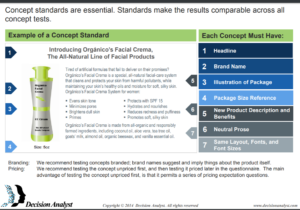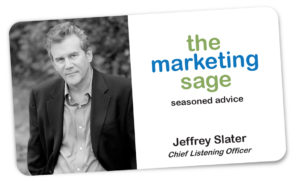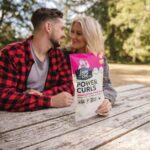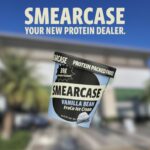I’m working on an exciting project for a beverage client who wants to evaluate ten beverage concepts with consumers.
We planned to write up a brief description of each idea, get a graphic artist to design an accompanying picture to illustrate it, and then to have relevant consumers rate and rank the ideas.
My experience with online concept testing is that it can be a colossal waste of time. And, when I have done this in the past, the results suck.
The problem is that concept testing allows you to screen ideas. It gives you almost no useful data if consumers like the product and if it is something they might purchase.
It is like evaluating ten songs and people pick the ones they like most. But the songs are all average and have no market potential, so you are picking the best of the average. (or the best of the worst).
The other issue I have with concept testing is trying to evaluate too many ideas at once. I can’t possibly judge ten ideas at one time – maybe three or four. Most concept testing squeezes too much into one piece of research.
Tasting, Holding, Feeling Matters
 Instead of online concept testing like this example courtesy of Decision Analyst, I’m proposing that for the same dollars, we test market the top idea quickly with an MVP (minimum viable product) and use the research dollars for marketing it to consumers. Pick a few products we (the marketing team) believe will appeal to our audience based on a key insight about needs.
Instead of online concept testing like this example courtesy of Decision Analyst, I’m proposing that for the same dollars, we test market the top idea quickly with an MVP (minimum viable product) and use the research dollars for marketing it to consumers. Pick a few products we (the marketing team) believe will appeal to our audience based on a key insight about needs.
Decision Analyst. a Dallas-based research company has an in-home testing product offering called iHUTS for in-home usage testing.
Here is a white paper by Jerry Thomas, CEO and President of Decision Analyst on the topic.
For this research, we will create 150 real-live samples and ship them directly to our targeted consumers in their homes.
Then, we will provide them with several options to evaluate the product like answer questions on a postcard, go online, or record answers on a phone call through the research firm.
The beauty of this approach is that the consumer can try the actual product at home and provide feedback on taste, texture, label, appearance, and even price. Instead of a concept, they react to a real product they can taste, smell, and sample in a real-world situation.
Then, if the feedback is encouraging, take the product to a retailer in one region and see if we can get it into a planogram within our targeted section. Then, spend some dollars to make that targeted audience aware of the new product, line extension, flavor, etc.
In taking this approach, we will learn if consumers buy the product, and if they like it enough to repurchase it.
I am much more interested in what consumers do versus what they say. And if I want to know their opinion, I want them to have a real experience, not something imagined.
Survey Skeptic
When I take surveys, I am always left uncertain about what I think conceptually about an idea.
The questions assume so much information, and I frequently answer quickly – because I just don’t have enough information.
How do I answer the question, would I drink this beverage more or less than orange juice?
Concept testing leaves me thirsty for more information. Whereas, in-home testing may give me the data to convince me that the product created through a keen insight has market potential and is worth a substantial investment in capital for equipment or consumer marketing efforts.
Would I buy a toothpaste that comes in pre-formed balls? I don’t know how to respond to this concept question.
Unless I’m trying out the product, I can’t tell if I love it or hate it.
No concept testing words or pictures will help me understand what pre-formed balls of toothpaste is like and I can’t predict if I would consider buying the product.
I remember that many years ago or, I never wanted a smartphone. Who needs to text? My flip phone worked fine.
It made no sense to me to buy an expensive iPhone. And no series of questions or drawings would entice me.
But once I had one in my hands and understood what it could do – wow.
The same is right about food and beverage products. A sample gives me information that words and pictures will never satisfy.
Would you buy ketchup that is made with vegetables and is sugar-free?
A concept like ketchup made with vegetables and no sugar is hard to imagine since my main concern is, will I like the taste? If I don’t like the taste, everything else won’t matter. It can hit all the buzz words and hot buttons, but the taste is almost always the top concern.
Marketing Lessons for Innovations
Given the options of spending the same amount of money on concept testing versus live-sampling at home, I know what I think of these ideas.
Don’t ask me what I think of a concept.
Give me something to hold in my hand, to see, taste, smell, and sample, and I’ll provide you with better feedback if I like the idea enough to consider future purchases.
Need help with new product testing and market research?
I can help. You can set up a time to chat with me about your marketing challenges using my calendar. Our initial conversation is free. You talk, I listen. Email me jeffslater@themarketingsage.com or call me. 919 720 0995. Visit my website at www.themarketingsage.com Let’s explore working together today.

Photo by Paige Cody on Unsplash




